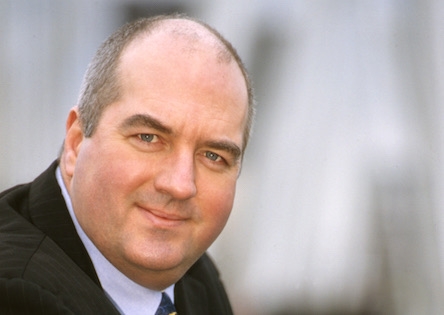The ‘Advice gap’ continues to crop up in the news, whether by way of being a problem for Artificial Intelligence to solve, or the source of regret from retiring consumers who did not, or could not, get timely and useful advice at a critical time in their lives.
I am in no doubt that many consumers need good financial advice, guidance or something that helps them avoid expensive mistakes.
Marketing, product design, HMRC and the regulators between them have over the years accidentally and unwittingly conspired to make the advice process – and the sale of product process – increasingly expensive and difficult.
So the headlines say ‘Advisers shifting towards wealthier clients’.
Of course we are. So are car manufacturers, package holiday companies and supermarkets. It’s called business.
There is nothing new here.
And that’s part of the point. We keep going over the same ground, and the problem never actually gets addressed. So let’s try to be bolder.
If we start from the oft-repeated premise (at least by me) that, “Financial Planning for most people can be done on the back of a beer mat, for the price of a pint.”
“Spend less, save more, make a Will and insure the breadwinners.”
I would add: “Join any employer pension scheme you can and don’t use interest only mortgages!”
And this simple planning should not have to be delivered by highly qualified and highly regulated financial advisers.
I can think of two under-used ways of delivering great advice and guidance, without troubling the regulator. But first – some heresy.
It seems to me that what we actually have is a ‘Distribution Gap’. What I mean is that it is more difficult and more expensive for consumers to access ‘stuff’ than it should be.
And by ‘stuff’, I mean simple ISAs, pensions and term assurance. Why can I borrow £20,000 with a few clicks of an App, but opening a £100 per month ISA can generate enough paper to fell a small forest. And yes – for some of the industry, it has got easier. But too many providers are still stuck in the 1990s. Wet signatures? Really?
The reason for these barriers is complexity. Massive ranges of funds, potential penalties and complex eligibility rules and allowances. And a HMRC that at times seems positively hostile to people saving.
What if all available products were non-toxic? No complex and geared funds. Low costs, zero penalties?
Could these then be distributed by brands the consumer actually still trusts? Amazon, and Waitrose?
I remember being impressed when – years ago – I saw boxes on the shelf at Boots with ‘Travel Insurance’ inside them. Red for ‘Worldwide Family’. Blue for ‘Winter Sports’. A brilliant way to make the intangible, tangible.
Of course, all this is now all online. I’m not sure that is an improvement, if I’m honest. Bring back the coloured boxes!
My two ways of delivering advice?
- Brilliant podcasts, such as meaningfulmoney.tv with books, and resources available. Financial Planner Pete Matthewhas been able to monetise this, and I have met many individuals who have been helped by him.
- Simonne has been running www.financial-coaching.co.uk for years now, and again, I have seen her work, and how it helps people.
So, we should solve the Advice Gap through mass education, and via unregulated - but highly professional - financial coaching.
And solve the Distribution Gap by encouraging big brands to sell cheap, safe and simple products.
It may not work. But nothing else has either.
Phil Billingham FPFS CFP Chartered Financial Planner, Chartered Fellow (Financial Planning) is a Financial Planner and a director of Perceptive Planning, a Chartered Financial Planning firm based in London and Essex. https://www.perceptiveplanning.co.uk/
Biography: Phil joined the profession in 1982 and is a past director of the Institute of Financial Planning (IFP). He is a past member of the Financial Planning Standards Board (FPSB) Regulatory Advisory Panel. He is a specialist in helping advisers cope with regulatory change and has worked with advisers, planners and regulators in the UK, Europe, USA, Canada, South Africa and Australia. He writes this column regularly for Financial Planning Today.

